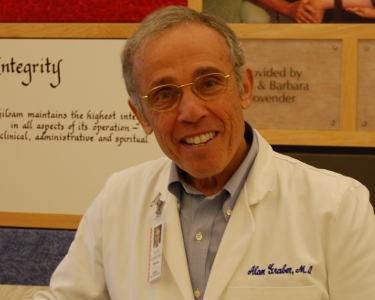
Since it was founded in 1991, Siloam Family Health Clinic has offered low-cost medical care to a growing population of Americans without health insurance. With a mission to “share the love of Christ by serving those in need through health care,” the clinic treated more than 18,000 people last year alone, with 79 percent from immigrant communities.
The idea for the clinic emerged one Sunday morning in 1989 while Dr. David Gregory was sitting in a service at Belmont Church in Nashville. “His compassion for the poor was his driving force,” said Nancy West, current president of Siloam. “He was aware of how far some impoverished people in the community had to travel for care. Dr. Gregory fully recognized that needs went beyond the physical and that people needed spiritual as well as emotional healing.”
Gregory said the clinic’s mission has never been to convert people to a particular brand of Christianity, but “to address their spiritual needs, to pray with them, to advise, and to refer to local pastors or churches as desired,” he said. “It is important for students and young physicians to see how medical care and faith can be integrated in a way that meets needs and also respects patient autonomy.”
In the last 18 years, the clinic has grown from a small operation in a converted apartment to a spacious, 12,000 square-foot, state-of-the-art facility in south Nashville. Last year, Siloam staffed three full-time physicians and three nurse practitioners, as well as a volunteer team of 84 physicians, 88 nurses, four pastors and 500 other assistants.
Patients are encouraged to contribute toward their health care costs, but no one is ever turned away because of an inability to pay. The clinic is supported entirely by individual and corporate donations, and patients’ payments. Siloam does not bill or file insurance claims.
Siloam workers say they depend on prayer and the leading of the Holy Spirit to meet patients’ needs—which could be physical, psychological or spiritual.
“The real ministry we have here at Siloam is the manifest presence of the Holy Spirit,” said Doug Mann, head of pastoral care at Siloam. “And if we understand that we move in that presence, then our mere presence in an examination room brings something tangible for our patients. What we do is bring the love of Christ to people who have been beat up and hurting.”
Mann said the clinic has had several unusual opportunities to minister to Muslims who venture inside. One day Mann got a call that a woman was there to see him. “I went up front and there was this woman who spoke no English, dressed head to toe in black with her four children,” he said. Using one of her daughters as an interpreter, the woman explained that she’d come as a result of a dream she had.
“She said, ‘I had a dream last night about a white-haired, tall man who had something to do with a church, and I asked at the front desk if there was a man like that here,’” Mann recalled.
Mann told the woman and her children about Jesus and gave her a Bible. A few weeks later, Mann was invited to the woman’s home. There, her husband told him, “I don’t understand it, but when she reads that book you gave her, why does her heart fly like it’s going to heaven?” Although the family has not accepted Christ, Mann believes a seed has been planted.
Because many of Siloam’s patients do not qualify for the state-funded health-care plan, the clinic provides a wide range of specialties ranging from endocrinology to cardiology. The clinic also educates patients on preventative care through its library of more than 300 health videos and 1,400 pamphlets in eight languages.
—RANDY RUDDER in Nashville, Tenn.














































